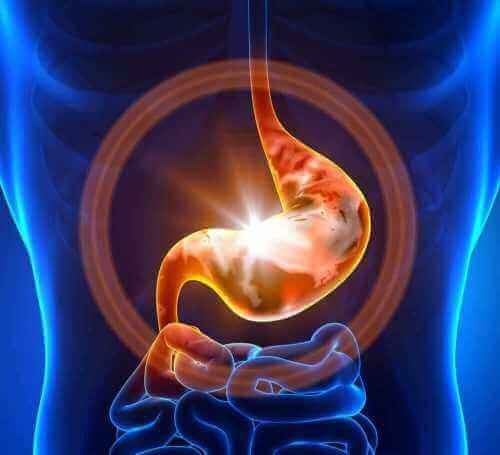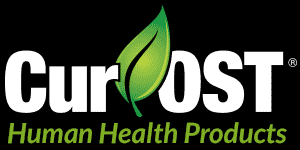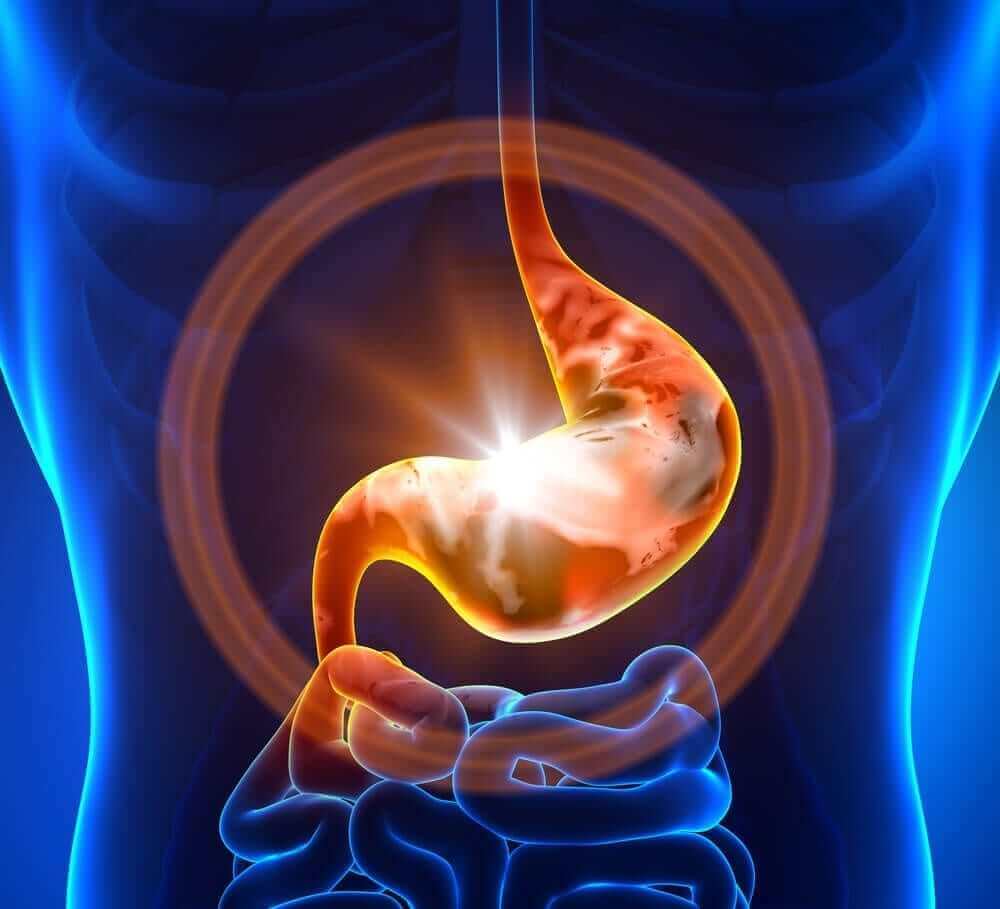We’ve all been there. Burning sensation in the stomach region, just below the sternum, sometimes even radiating up into the chest. In some cases, there is an acidic taste in the mouth and a rapid heartbeat to go along with it, hence the term ‘heartburn’. It’s a common problem in today’s society, leading to abuse of over the counter antacids or acid reducers, increased prescription medications and even emergency room visit. Heartburn and stomach ulcer conditions can be innocent in many situations, but if ongoing, can lead to some significant health hazards including a higher risk of esophageal and stomach cancer. But, are the medications the answer? Are they really the solution? What is the story here and can we do better in regards to managing the problem?

If you suffer from heartburn or gastric upset, you are not alone. Personally, this is a problem that I have even dealt with occasionally. No one is immune to this condition. According to Healthline.com, 60% of the adult population will experience some type of gastroesophageal reflux disease with a year’s time and 20-30% will have weekly symptoms. When it comes to stomach ulcers and Helicobacter pylori infection, 30% of the population has a present infection and 1 out of 6 will develop ulcers. Peptic ulcers impact upwards of 10% of our American population. Those numbers are significant, even alarming, when you consider the high subsequent use of medications to combat the problem, which is estimated to be $10 billion dollars or more annually.
Signs of GERD (gastroesophageal reflux disease) and stomach ulcers can range from vague to more severe. In most cases, we may feel a burning sensation, slight abdominal pain, bloating, burping or generalized discomfort that may come and go, improving often with a meal. In regards to reflux, the symptoms may extend upwards, being felt in the chest region with discomfort, tightness and a burning sensation, which sometimes can involve the back of the throat.
Diagnosis of Stomach Ailments
Heartburn and even stomach upset is a common problem, but if the situation does not improve in a short period, is recurrent or becomes worse, you should consult with your physician. Even a minor problem can become worse with time, so it is better to be safe than sorry. In many cases, a diagnosis can be made based off of clinical signs, being suspicious of GERD or gastric ulcers and your physician may opt for a trial course of medications to assess impact. In other cases, especially those that are ongoing or have worsened, gastroscopy or other specialized testing procedures may be required. In almost all cases, your physician will screen you for Helicobacter pylori, to see whether if this bacteria is posing a problem or not.
Medication Options for Stomach Problems and Ulcers
There are many classes of medications traditionally used to help combat the clinical signs of GERD or gastric ulcer syndrome in people. Many are available over the counter, while some require a prescription.
- Coating agents such as Bismuth Subsalicylate
- Histamine (H2) blockers, which then help to reduce acid production (Cimetidine, Famotidine, Ranitidine)
- Proton pump inhibitors which directly block or decrease acid production (Esomeprazole, Lansoprazole, Omeprazole)
One of the key take homes when it comes to these medications is that they each can help alleviate clinical symptoms and improve patient comfort, however, they are not intended for long term use.
Contributors to Stomach Health and Disease
- Helicobacter pylori : H. pylori is a bacteria often acquired through food and water sources, which can inhabit the gastrointestinal tract. This type of bacteria generally favors more acidic environments, thriving in them, thus can create issues in the stomach where acid levels are generally higher. As mentioned above, it is estimated that 30% of the adult population currently harbors the bacteria and 1 out of 6 will develop and ulcer as a result. The bacteria, if present in high enough numbers, along with favorable conditions, can irritate the lining of the stomach, creating an inflammatory response and precipitating ulcers. This condition, if present for an extended period of time, can actually increase the incidence of certain types of cancer, including stomach and esophageal. The increased risk is usually extended to ongoing, damaging inflammatory changes that are present at a cellular level. If you are suffering from stomach ailments, testing for H. pylori is available routinely at most physician’s offices. Treatment is usually a course of specific antibiotics, along with antacid type medications.
- Diet: Diet can play a huge role in GERD and gastritis/ulcers. A diet that is higher in fats and one that is higher in processed foods, with lower nutrient value, can predispose a person to these conditions. A diet that is higher in fruits, vegetables and overall fiber, being lower in red meats, can also be preventative and protective due to higher phytonutrients and antioxidant protection.
- Stress: Stress, both physical and mental is a major contributor to both conditions. As an entity alone, stress can result in higher acid secretion by the stomach and altered motility patterns, which then can predispose to tissue irritation. The act of stress, as noted in many research papers, also increases the levels of various hormones, including Cortisol, which has been demonstrated in many research papers to contribute immensely to gastric ulcer erosions. In many cases, a person under large amounts of stress, often has a decreased appetite, thus less potential buffering effect to the increased acid production. Those same people are less likely to eat a healthy diet, more prone to eating on the run with higher levels of fat and processed ingredients. This group of people are also more likely to be steady consumers of antacid type of medications, with other concurrent health problems associated with the stress response including hypertension and high cholesterol.
- Exercise: Exercise is a release for the body, helping to let go of unneeded stress, relieve tension and regain focus. As a benefit of exercise, many don’t just get this ‘release’ but feel better overall and are in better body condition. A steady exercise program can give great benefits for many chronic health conditions, but as the saying goes…everything in moderation. Too much exercise can actually create undue stress upon the body itself, especially if factors are not in place to make amends for that added stress, such as a healthy diet, increased caloric intake, protein and other nutrients.
Side Effects of Medications
No medication is without side effects and in the case of most chronic health conditions, most medications are strictly targeting clinical symptoms, not the underlying problem. In the case of chronic use of antacid or stomach acid blocking medications, there are concerns, which is one reason the FDA had issues many years ago regarding making some of them available over the counter. They were concerned about medication abuse and self diagnosis, and long term implications of usage of those medications.
Some of the biggest concerns have been raised regarding PPI or proton pump inhibitors. Long term side effects from these medications can include various vitamin and mineral deficiencies (magnesium, iron, calcium and vitamin D), increased risk of bone fractures, kidney disease, gastrointestinal infections with Clostridium species, increased infection susceptibility, predisposition to SIBO or small intestinal bacterial overgrowth, drug interactions and even cognitive impairment.
Given the increased incidence of long term side effects of these medications, there have been new guidelines given to physicians regarding their usage. Overall, if the medications are utilized it is recommended to use for only a short period of time, consider reducing to the lowest effective dose for the patient, consider switching to a H2 Receptor antagonist and also make dietary and/or lifestyle changes.
Alternative and Lifestyle Options for Stomach and Digestive Problems
Stress reduction is paramount, at least in my world. We are all consumed by stress, with most not even realizing the amount of stress that we are under on a daily basis. I think, personally, that the first step to recovery or improved health is to realize and become conscious of the stress we are under and how it is influencing our health. We don’t have to be a Wall Street day trader to experience stress. Even a person with an inactive lifestyle, sedentary, can undergo stress on a physical and emotional level.
In the world of Traditional Chinese Medicine and Ayurvedic medicine, they put a large emphasis on the power of emotions to stir up the fire inside of us, which can contribute greatly to many disease conditions including GERD and stomach ulcers. These emotions are linked back to energy, blocking or stagnation of energy, improper flow, increased acid secretion, poor digestion and motility and increased heat or inflammation within the body.
I believe the most important thing here, outside of awareness of our problem, is to create balance within that body, and this can be helped along by many modalities. Meditation, yoga and exercise can greatly assist with stress reduction and energy flow within the body, helping us to get our minds off of various issues and redirected. This can go a long way with health, especially if conducted routinely. A change in diet can also greatly assist us in restoring balance and improving health, through provision of natural nutrients and antioxidants. Many foods, herbs and spices can also assist us with digestion as well.
Some of my favorite herbs for assisting with digestion and stomach related ailments include:
- Turmeric: Turmeric is the herb Curcuma longa and has been used for centuries as a digestive tonic, assisting in gall bladder contraction and bile secretion. Turmeric is also highly regarded for its ability to modulate the inflammatory process and provide antioxidant protection. Curcumin is one of the main active ingredients, commonly used in a 95% extract. Turmeric has many beneficial properties and has demonstrated not only benefits in gastric ulcer conditions, but also against H. pylori mediated problems.(1,2)
- Poria cocos: Poria cocos is a medicinal mushroom with many clinical benefits including modulation of the inflammatory process and immune support, but is most regarded for its ability to promote a healthy digestive response. It is commonly used in many traditional Chinese herbal formulas to promote digestion and assimilation of some harder to digest herbs and tonics.
- Dandelion: Dandelion is another western herb that is used for a variety of conditions, including benefiting digestion. It has been shown to positively improve gastric or stomach emptying and also intestinal motility, which can assist in managing cramps and even bloating (3). Dandelion also exhibits anti-inflammatory and antioxidant capabilities.
- Astragalus: Astragalus is one of the main herbs used in many Chinese herbal formulas to support digestive energy, through a variety of actions including anti-inflammatory and antioxidant capabilities. It has been heavily researched in regards to gastric or stomach cancer, demonstrating benefits in regards to cell destruction or apoptosis.(4)
- Ginger: Ginger is commonly used in Ayurvedic medicine to boost ‘digestive fire’, often taken before or with meals, but is also well known for aiding in the relief of nausea.
- Parsley: Parsley is commonly used also as a digestive tonic, which is why it has been traditionally placed on plates of food at restaurants. It has demonstrated the ability to modulate chemically induced ulcers, likely through modulation of the inflammatory process (5).
- Anise: Anise is another common digestive tonic used in Ayurvedic medicine, commonly sipped as a tea after meals, aiding in overall digestive support.
- Marshmallow: Marshmallow is also commonly used to provide a cooling and soothing effect through inherent polysaccharides and mucilage content.
- Aloe: Aloe gel has many beneficial properties and has been used for centuries for aiding in overall wound healing. In some studies, oral ingestion has been noted to reduce stomach acid secretion, which would benefit stomach ulcers (6). Aloe vera gel has also demonstrated antibacterial properties, especially against Helicobacter pylori (7).
- Triphala: Triphala is an ancient Ayurvedic formula consisting of 3 primary herbs including Amalaki, Bibhitaki and Haritaki. It is traditionally used as a digestive tonic, helping to enhance overall digestion and support detoxification. The formula has demonstrated marked anti-inflammatory properties and has been proven useful in a variety of conditions pertaining to the digestive tract from ulcers to colitis. (8)
These are just a handful of examples of herbs that can benefit gastrointestinal and stomach health, helping to soothe active ulcers, impact acid secretion and impact inflammation.
In the end, we have a choice, always a choice. Most health ailments are related to our lifestyle, which includes behavior patterns. We have a choice to change our ways and as we change for the better, often health improves additionally. Through the implementation of lifestyle changes, dietary changes, stress reduction and proper use of herbs, our health can be greatly enhanced.
At Nouvelle Research, Inc, our job is to provide educational tools and supplements to assist you with your health goals!
Author: Tom Schell, D.V.M., CVCH
References:
- Sarkar, A et al. Curcumin as a potential therapeutic candidate for Helicobacter pylori associated diseases. World J Gastro, 2016 Mar 7:22(9):2736-48
- Yadav, SK et al. Turmeric (Curcumin) remedies gastroprotective action. Pharmacogn Rev, 2013 Jan 7;(13):42-6
- Jin, YR et al. The effect of Taraxacum officinale on gastric emptying and smooth muscle motility in rodents. Neurogastroenterol Motil, 2011, Aug 23(8):766
- Wang, Z et al. Astragalus extract inhibits proliferation but enhances apoptosis in gastric cancer. Pak J Pharm Sci, 2016 Sept; 29(5):1473-82
- Al-Howiriny, T et al. Prevention of experimentally induced gastric ulcers in rats by an ethanolic extract of “parsley” Petroselinum crispum. Am J Chin Med, 2003;31(5):699-711
- Keshavarzi, Z et al. The effects of aqueous of Aloe Vera leaves on the gastric acid secretion and brain and intestinal water content following acetic acid induced gastric ulcers in male rats. Avicenna J Phytomed, 2014 Mar; 4(2): 137-43
- Cellini, L et al. In vitro activity of aloe vera inner gel against Helicobacter pylori strains. Lett App Microbiol, 2014 Jul; 59(1):43-8
- Nariya, MB et al. Comparison of gastroprotective effects of Triphala formulations on stress induced ulcers in rats. Indian J Pharm Sci, 2011 Nov-Dec; 73(6):682-687



you article was really very helpful for me specially , i am some stomach issues after reading your article ,started using these herbs in my routine ,m getting good results
thanks a lot